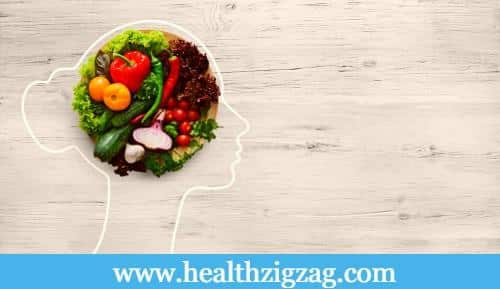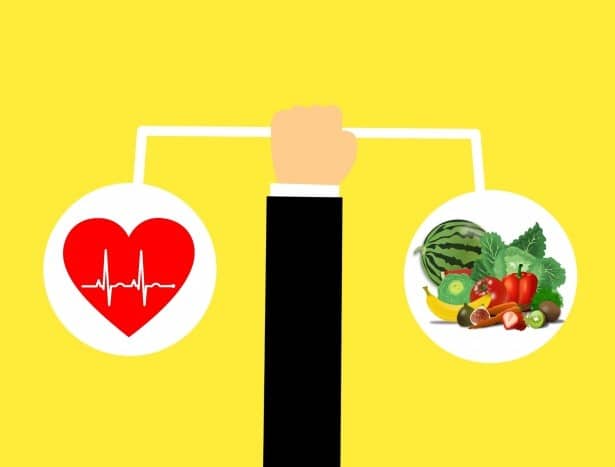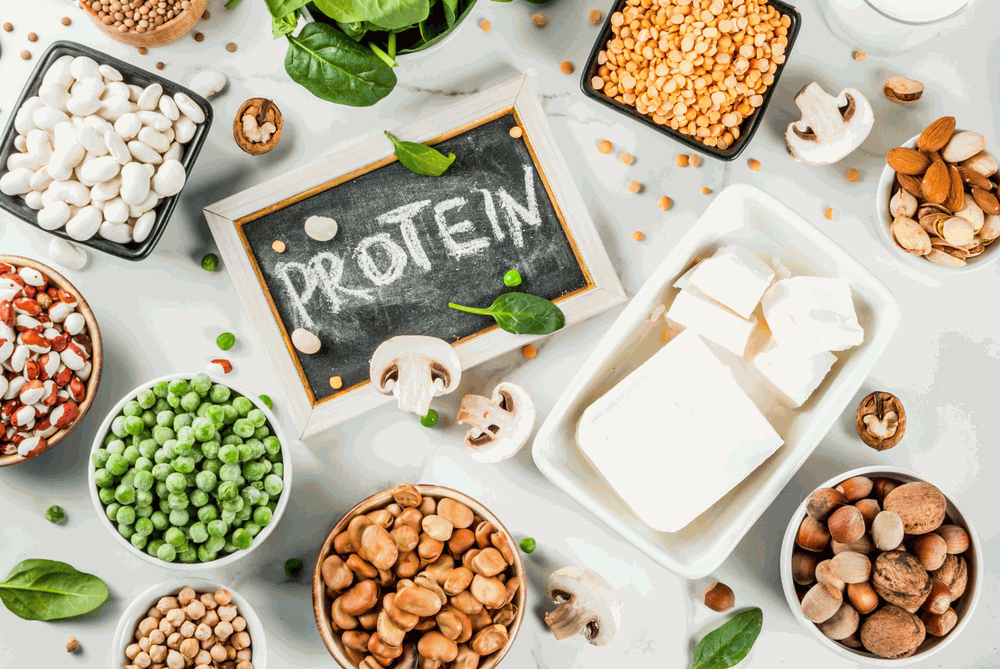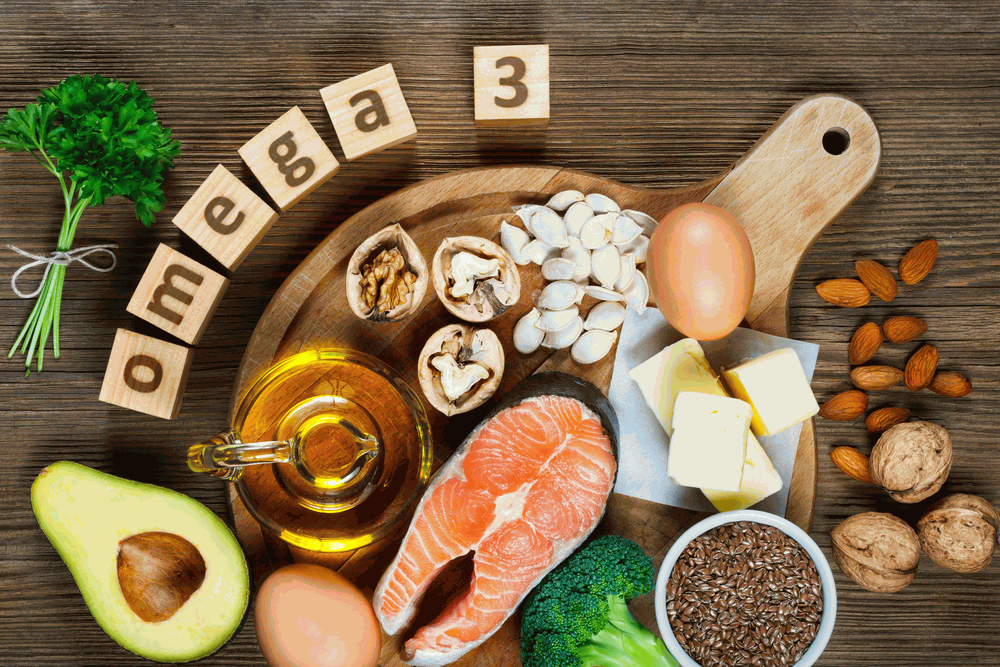
How to eat healthy if you’re a vegetarian
People adopt a partially or completely vegetarian diet for many reasons. Perhaps you reduce your consumption of meat, seafood, dairy and/or eggs to improve your health, for ethical or religious reasons, to end the impact of livestock on the environment, to save or just to try. A vegetarian diet reduces the risk of heart disease, hypertension, obesity, diabetes, and even some cancers. However, adopting such a diet does not mean simply removing the meat from your plate and eating what is leafy. Changing your diet means changing your lifestyle. Besides, if you avoid essential food groups, you put yourself at risk of nutrient deficiency such as iron, vitamin B12.
Become a vegetarian

Ask yourself what are your motivations
Ask yourself what motivates you to change your lifestyle. What attracts you to a vegetarian diet? The health benefits? Compassion for animals? Religious or spiritual beliefs? The first step in making a drastic lifestyle change is to identify the reasons that prompt you to change. These reasons will help you stay motivated during the transition.
Identify the type of vegetarian diet you want to follow
There are different types of vegetarian diets depending on the degree of food restriction. Choosing one, practical and corresponding to your motivations, will help you to respect your new diet more easily. Below are the different types of vegetarian diets [1].
- The vegan diet. Avoid all animal products such as meat, poultry, fish, dairies, eggs, and gelatin. Most vegans also refuse to eat honey. Some refuse to use animal products such as fur, leather, silk, or certain beauty products.
- The lactovegetarian diet. You can eat dairy products, but no meat, poultry, fish, or eggs.
- The ovo-vegetarian diet. You can eat eggs, but no meat, poultry, fish, or dairy.
- The lacto-ovo-vegetarian diet. You can eat dairy and eggs, but no meat, poultry, or fish. This category is most common among Americans.
- The pesco-vegetarian diet. You can eat fish, dairies, and eggs, but no meat or poultry.
- Flexitarianism. You avoid animal products at most meals but occasionally eat meat, poultry or fish.
Create a support system
Talk to your friends and loved ones about your intentions and motivations and ask for their help. A strong support system will facilitate the lifestyle change process and help you prevent the risk of relapse. Get involved in the vegetarian community by participating in online forums and reading magazines or blogs where you can find helpful tips and resources.
Read Also
Understanding your nutritional needs
Research your nutritional needs
Whether you’re chatting with a vegetarian friend or combing the internet, you’ll find plenty of advice on the vegetarian diet. However, to eat healthy as a vegetarian, you need to know your nutritional needs in terms of calories per day and nutritional recommendations. These needs vary depending on your age, gender (nutritional needs are not only different for men and women, but also pregnant women) and your lifestyle (for example, your needs will be different if you rarely exercise or if you train for a marathon).
- Look for information specific to your age group, gender, health, and lifestyle.
- Use the vegetarian food pyramid for advice on the amount and type of food to eat for a well-balanced, plant-based daily diet.
- Consult a doctor and/or registered dietitian. Registered dietitians are registered with the Commission on Dietetic Registration of the Academy of Nutrition and Dietetics.
Eat different varieties of food
Whether you are a vegetarian or an omnivore, variety is the key to a healthy, well-balanced diet [2]. Whichever type of vegetarian diet you choose to follow, you are at risk of nutritional deficiency because your diet does not provide the nutritional benefits of certain food groups. Vegans who follow the most restrictive diet are most at risk.
Get enough protein

Proteins are essential to the human body because they are present in every cell. They are necessary for the growth and good health of organs, bones, and muscles.
- The recommended daily amount of protein differs according to age, gender, and level of physical activity [3]. For example, a girl between 9 and 13 years old who practices less than 30 minutes of moderate exercise per day should consume about 140 g of protein per day. A man between 19 and 30 years old practicing the same amount of exercise should consume 180 g per day.
- Other sources of protein besides meat are eggs and dairy products. Plant-based foods can also provide you with enough protein if you eat different types of them every day. It can be a meat substitute or legume (beans, lentils, grains, nuts, and whole grains). You can read more in 10 protein-rich vegetables.
Get enough calcium
Calcium is the most abundant mineral in the human body [4]. It is essential for the formation and strength of bones and teeth.
- Children and adolescents have a higher daily requirement for calcium than young adults. Older women should also consume enough calcium to prevent osteoporosis, which weakens bones. A calcium calculator will let you know if you are getting enough calcium.
- Dairy products are the richest foods in calcium, but dark green leafy vegetables (such as kale, broccoli, and spinach) are also a good source if eaten in sufficient quantities. You can also meet your daily calcium needs by consuming products that contain it (such as vegetable-based milk and yogurt, juices, and grains [5] ).
Add enough vitamin B12 to your diet
This vitamin is essential for the production of red blood cells and the prevention of anemia.
- Unfortunately for vegetarians, vitamin B12 is found almost exclusively in animal products. They are found in dairy products, eggs, vitamin-fortified foods (such as breakfast cereals, nutritional yeast, and soy products) and vitamin supplements.
- Vegans should watch their diet carefully, as the vegan diet is rich in folic acid, a substance that can mask vitamin B12 deficiency.
Stock up on riboflavin every day
Riboflavin, also known as vitamin B2, promotes the growth and production of red blood cells by working with other B vitamins in the body. The body cannot keep it, because it is water-soluble and must be consumed every day [6].
- The recommended daily amount of riboflavin varies from country to country depending on the age and sex of the person but also depending on whether they are pregnant or breastfeeding [7].
- Sources of riboflavin for vegetarians are dairy products, eggs, dark green leafy vegetables, legumes, nuts, and fortified bread and cereals.
Eat enough iron
Iron is a mineral found in red blood cells. It is found in the protein called hemoglobin, which carries oxygen through the blood [8].
- Iron deficiency is known as anemia, a condition in which the body does not get enough oxygen from the blood. It is also possible to consume too much iron. The recommended daily amount differs for adults and children.
- Vegetarians can get iron by eating legumes, lentils, cereals for breakfast, whole grains, dark green leafy vegetables and dried apricots, prunes, and raisins [9].
- It is more difficult to absorb iron from plant foods. The recommended daily amount of iron for vegetarians is, therefore, twice that of omnivores. Eating foods rich in vitamin C (such as lemons, strawberries, and tomatoes) with foods containing iron helps the body absorb this nutrient [10].
Consume zinc
Zinc, a mineral, keeps the immune system healthy and is essential for cell division and protein production.
- As with other vitamins and minerals, your recommended daily intake of zinc depends on your age and gender.
- Zinc of animal origin is better absorbed and dairy products are therefore the best for vegetarians. It is also found in whole grains, soy, legumes, nuts, wheat germ, and breakfast cereals fortified with zinc. However, the zinc in plant foods is not as easily digested [11].
Eat foods rich in omega-3s

Omega-3 fatty acids are essential fats for the human body. They keep the heart healthy and help fight heart disease. Unlike other fats that can be produced by the body, people find these fatty acids only in food.
- Eating enough omega-3 helps you fight various illnesses (ranging from allergy to asthma, cancer, and bipolar disorder.
- Fish and eggs are good sources of omega-3 fatty acids. This is also the case with rapeseed and soybean oil, nuts, ground flax seeds, and soybeans. If you rely solely on sources of plant-based omega-3s, you will need fortified products or supplements to get the recommended daily amount.
Don’t forget the iodine
Iodine is essential for the proper functioning of cell metabolism and the thyroid gland. Individuals with iodine deficiency can develop a goiter.
- Iodized salt, soybeans, cruciferous vegetables (like Brussels sprouts and cauliflower), sweet potatoes, and seafood all contain iodine.
- The need for iodine is not an excuse to eat a lot of salt. The diet in some countries tends to be too high in sodium, which can cause high blood pressure, heart attacks, and another cardiovascular disease. The salt used in prepackaged foods is not iodized. For good general health, it is best to reduce your sodium intake.
Take a vitamin D supplement
Vitamin D promotes calcium absorption and is therefore essential for bone health. It is found naturally in some foods, however, the human body also produces it when exposed to sunlight.
- The best sources of vitamin D are fatty fish such as herring and mackerel. Foods fortified with vitamin D for vegetarians avoiding seafood are dairy products, soy milk, rice milk, breakfast cereals, and margarine. Read food labels to find out how much vitamin D they contain.
- People with limited exposure to the sun or not eating enough vitamin D-containing foods should take plant-based supplements.
Pay attention to the size of your portions
To get enough nutrients from a vegetarian diet, you need to eat a sufficient amount of a given food. However, just because you don’t eat meat doesn’t mean you can eat as many fries and pizzas as you want.
- The vegetarian food pyramid and food labels provide useful information on recommended serving sizes. They help you to know your calorie consumption and your nutritional needs.
- You will appreciate being able to visualize your portion sizes, such as a tennis ball for a cup of dough or fruit.
Adopt a vegetarian lifestyle
Go gradually
Choosing not to eat certain food groups means changing the way you live. Even if you can leave a group of food by “weaning yourself suddenly”, you will more easily reach your goal by starting by introducing one meatless meal per day into your routine. Then increase the number of meatless meals you eat each week.
Read Also
Make your tests and substitutions
If you’re cooking, try to cook your favorite recipes without putting meat on them. For example, you can make a spaghetti sauce without meat or with a vegetarian substitute. You can also prepare your fruit shake with almonds or soy instead of dairies. In your favorite restaurant, order what you’re used to eating without the food group you want to avoid: order a bean burrito with grilled vegetables instead of your usual beef and cheese burrito. The alternatives to the different food groups can be plant-based foods alone or processed:
- the vegetable-based alternatives to meat and poultry are beans, tofu, tempeh, textured soy protein and Quorn products that are made from mycoprotein,
- milk alternatives can be made from soy, rice, coconut, hemp, almonds, and sunflowers,
- alternatives to other dairy products (such as cheese and sour cream) are obtained from a combination of plant materials,
- alternatives to eggs are products processed for commercial purposes and foods made from a single ingredient such as silky tofu, meals made from flaxseed, fruit purees (bananas or apples), buttermilk, yogurt, etc.
Do not sink into monotony
Being a vegetarian does not mean eating a salad with every meal. By varying your meals, you are not only more likely to get enough nutrients, but you will also be able to respect your lifestyle change.
- Subscribe to a blog or magazine for vegetarian recipes.
- Borrow a vegetarian cookbook from the library.
- Shop at the local farmer’s market and ask the vendors to recommend vegetarian recipes.
- Go to an ethnic restaurant near you and taste the vegetarian dishes.
- Buy prepared foods from the nearest health food store to eat them or use them as inspiration for your next meal.
Follow the general guidelines of the scientists
Researchers agree that a healthy diet, whether plant-based or not, involves preparing your meals, avoiding processed foods and drinks, drinking enough water, and to know the quantity of food ingested as well as the feeling that food gives.
Advice
- When buying fresh vegetables, keep in mind the amount of food you can eat or prepare to minimize food waste.
- Consider the possibility of taking multivitamins.
- Shop at an agricultural market and buy fresh produce. Vegetables from local sources are more likely to retain nutrients than produce transported over long distances.
- Gelatin is made from animal bones. Read product labels carefully if you don’t want to eat them.
- Check the ingredients in your food.
Warnings
Do not think that a vegetarian diet immunizes you against foodborne illness. A 2013 report from the Centers for Disease Control and Prevention indicates that plants are responsible for as many foodborne illnesses as meat. Give priority to food security. Published By Healthzigzag.com




